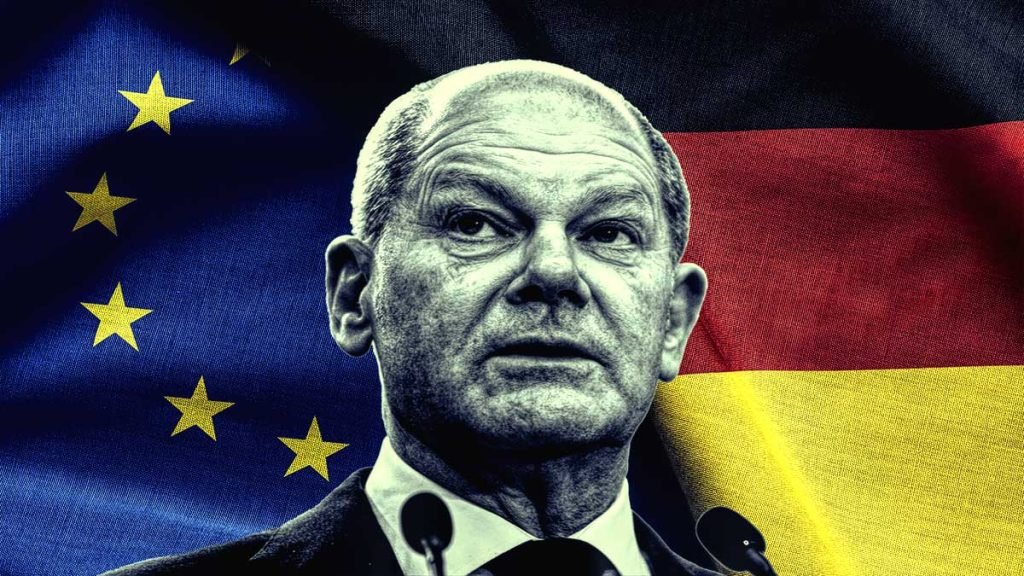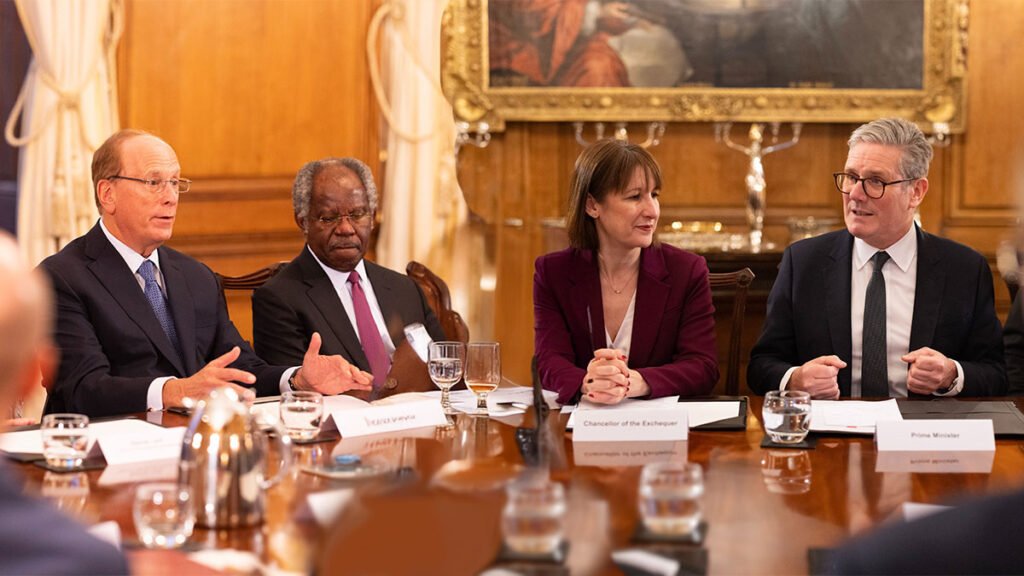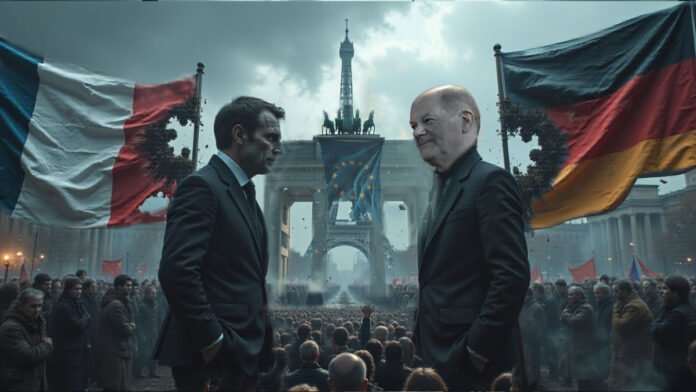The EU’s Twin Engines Stall: France and Germany Face Political Chaos
In the grand theatre of European politics, two of the continent’s most powerful nations are experiencing seismic tremors that threaten to reshape the entire political landscape. France and Germany—long considered the twin engines of European integration—now find themselves in a state of unprecedented political fragmentation.
In France, President Emmanuel Macron’s political machinery has descended into what can only be described as controlled chaos. The process itself was emblematic of the disorganisation plaguing Macron’s administration. Reports described a “tense” two-hour meeting between Bayrou and Macron at the Élysée, during which Bayrou was initially told he would not be named prime minister. The final decision came so late that staff at Matignon, the prime minister’s residence, were left scrambling to adjust the setup for the transfer ceremony.
The appointment of François Bayrou as the fourth prime minister this year is less a strategic move and more a desperate gambit. It’s a clear signal of a political system literally cannibalising itself, unable to generate stable governance.
Bayrou, a 73-year-old political survivor, represents the last gasp of centrist politics in a dramatically polarised landscape. His nomination comes after a parliamentary drama that would be comedic if it weren’t so tragic.
Bayrou inherits a fractured legislature where both the far-right National Rally and the far-left France Unbowed wield significant influence. His predecessor, Michel Barnier, was ousted after a failed attempt to pass an austerity-driven social security budget. Barnier’s reliance on Marine Le Pen’s National Rally backfired, as the far-right withdrew support over disagreements on budget cuts, leading to his downfall.
The opposition has already sharpened its knives. Jean-Luc Mélenchon’s France Unbowed has pledged to introduce a no-confidence motion, while the Greens have warned that any continuation of Macron-era policies will force their hand. Even moderate Socialist leader Olivier Faure, while offering conditional support, criticized Bayrou’s appointment as exacerbating France’s “democratic crisis.”
Bayrou’s task is monumental: to form a government that can survive in a legislature where opposition factions are increasingly united against Macron’s policies. The broader question looms—can France’s deeply divided political system endure this level of instability?
Germany

Across the border, Germany’s political drama is unfolding with characteristic precision. The situation mirrors France’s instability, albeit with a more procedural veneer. Chancellor Olaf Scholz’s imminent political departure is a slow-motion collapse choreographed with quintessential German precision. His tri-party coalition—always a marriage of convenience rather than genuine ideological alignment—has spectacularly unravelled over fundamental disagreements about fiscal policy and social spending.
The roots of Germany’s crisis lie in Scholz’s fractious three-party coalition, which imploded over spending disagreements. Scholz’s Social Democrats (SPD) and the Greens favoured expansive social safety nets and green investment, clashing with the fiscally conservative Free Democratic Party (FDP). The collapse marks the end of a coalition that was always a tenuous partnership.
What we’re witnessing is more than just a governmental transition. These are systemic failures of the post-Cold War European political consensus. The centrist model that promised stability, gradual reform, and incremental progress is dramatically breaking down.
In France, the political spectrum has fragmented into razor-sharp factions. Marine Le Pen’s National Rally, Jean-Luc Mélenchon’s radical left, and Macron’s dwindling centrist bloc are engaged in a complex political chess match where traditional alliances mean nothing. Each move is tactical, short-term, and potentially devastating to long-term governability.
Germany presents a slightly different but equally profound crisis. The rise of the Alternative for Germany (AfD) and the potential realignment of conservative politics signal a potentially dramatic rightward shift. The Greens—once considered a radical alternative—are now positioning themselves as potential coalition partners with the conservative CDU, demonstrating how fluid and unpredictable political identities have become.
The polling numbers tell a stark story. In Germany, the CDU is polling at 32%, while Scholz’s SPD languishes, potentially falling behind the far-right AfD. In France, no single political bloc commands a sustainable majority.
These are not isolated incidents but symptoms of a broader European malaise. The promise of the European project—stability, prosperity, gradual integration—is being challenged by economic uncertainty, cultural tensions, and a growing disconnect between political elites and broader populations.
The traditional left-right political axis has been replaced by a more complex terrain where populist movements, ecological concerns, and nationalist sentiments interact in unpredictable ways. The old rulebook has been thrown out, and no one is quite sure what comes next.
Meanwhile, the FDP faces potential political oblivion, polling below the 5% threshold needed to secure representation in the Bundestag. The AfD’s rise and the emergence of the populist-left Alliance Sahra Wagenknecht (BSW) are further complicating coalition-building, likely making volatile three-party coalitions the new norm.
The Crumbling Foundations: Europe’s Political Metamorphosis

The crises in France and Germany highlight deeper structural issues within the EU. France’s chaotic governance and Germany’s methodical unravelling both point to a broader erosion of political stability across Europe. These developments raise critical questions about the EU’s ability to navigate economic and social challenges while maintaining unity among its member states.
This isn’t just about internal politics; it’s about the future of the European Union itself. France and Germany, traditionally the bedrock of European integration, are both teetering on the edge of political dysfunction. The outcomes of these crises will reverberate far beyond their borders, potentially reshaping the trajectory of an already fragile Eastern European bloc.
Amongst it all, in the United Kingdom, a curious political paradox has emerged. Prime Minister Sir Keir Starmer and the Labour Party find themselves in an unexpected position of strength, not through electoral brilliance, but by default. The Tory Party’s spectacular implosion—a self-destructive spiral of internal chaos, Brexit fallout, and a rotating cast of prime ministers—created a political vacuum that Labour filled.
But with that comes a stark irony. Labour’s current polling position is less a ringing endorsement and more a damning indictment of their predecessors.
This is not a story of political renaissance but of systemic collapse. The traditional two-party system in the UK—much like the proportional representation models across Europe—has been exposed as fundamentally incapable of addressing the complex challenges of the 21st century. The problem runs deeper than individual politicians: it’s the entire political infrastructure that has become corrupted, prioritizing corporate interests and oligarchic power over genuine democratic representation.
The system itself is broken. Politicians have become actors in a performance of democracy, representing everything but the people who elected them. They are puppets of multinational corporations, financial elites, and special interest groups, rather than servants of the public will.
For those who believe in democratic progress, this moment demands neither panic nor despair, but clear-eyed analysis and renewed commitment to genuine political representation. The current system is breaking—and in its fractures, new possibilities might emerge.
As Antonio Gramsci presciently observed: “The old world is dying, and the new world struggles to be born: now is the time of monsters.”
These are not just political transitions. They are tectonic shifts in the very foundations of Western democratic governance.
Support Independent Journalism Today
Our unwavering dedication is to provide you with unbiased news, diverse perspectives, and insightful opinions. We're on a mission to ensure that those in positions of power are held accountable for their actions, but we can't do it alone. Labour Heartlands is primarily funded by me, Paul Knaggs, and by the generous contributions of readers like you. Your donations keep us going and help us uphold the principles of independent journalism. Join us in our quest for truth, transparency, and accountability – donate today and be a part of our mission!
Like everyone else, we're facing challenges, and we need your help to stay online and continue providing crucial journalism. Every contribution, no matter how small, goes a long way in helping us thrive. By becoming one of our donors, you become a vital part of our mission to uncover the truth and uphold the values of democracy.
While we maintain our independence from political affiliations, we stand united against corruption, injustice, and the erosion of free speech, truth, and democracy. We believe in the power of accurate information in a democracy, and we consider facts non-negotiable.
Your support, no matter the amount, can make a significant impact. Together, we can make a difference and continue our journey toward a more informed and just society.
Thank you for supporting Labour Heartlands









